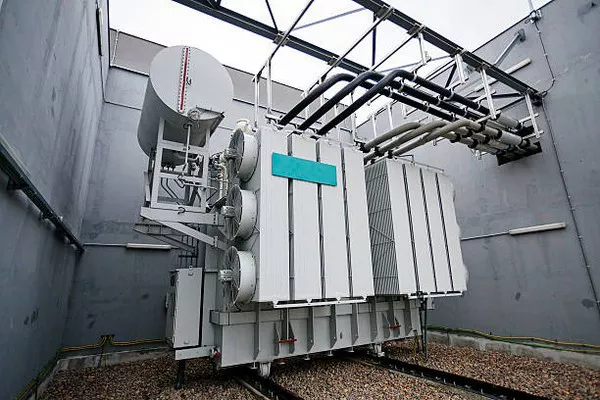In times of power outages or emergencies, having a reliable generator is crucial to maintaining comfort and essential services at home. One common question that arises among generator owners is whether a 7500-watt generator is sufficient to power an air conditioner. In this article, we will explore the key factors that determine the compatibility between a 7500-watt generator and your air conditioning unit.
Assessing the Power Requirements
Before delving into the specifics, it’s important to understand the power requirements of your air conditioner. The power consumption of an air conditioner is typically measured in British Thermal Units (BTUs) per hour. To determine the necessary wattage, you can use the following formula:
Watts = BTUs per hour / EER (Energy Efficiency Ratio)
For instance, if your air conditioner has a cooling capacity of 18,000 BTUs per hour and an EER of 10, the required wattage would be:
Watts = 18,000 BTUs per hour / 10 EER = 1800 watts
Keep in mind that this is a general estimate, and it’s advisable to check your air conditioner’s manual or nameplate for accurate information on power requirements.
Generator Power Output
A 7500-watt generator is capable of providing 7500 watts of power under normal operating conditions. However, it’s crucial to understand that the rated wattage may not be constant, and generators often have a surge or peak power rating. The surge power represents the temporary additional power a generator can supply for a short duration, typically to handle the initial startup of appliances with higher power demands.
When assessing whether a 7500-watt generator can run your air conditioner, consider both the rated and surge wattage. Air conditioners generally have a higher power demand during startup, so the generator’s surge power should be sufficient to accommodate this peak load.
Starting and Running Watts
Generators and appliances are often labeled with both starting (or surge) watts and running watts. The starting watts represent the maximum power required during the initial startup, while running watts indicate the continuous power needed to keep the appliance running.
When matching a generator to an air conditioner, ensure that the starting watts of the air conditioner are within the generator’s surge power rating, and the running watts are within the continuous rated power output. This compatibility ensures that the generator can handle both the initial surge and sustained operation of the air conditioner.
Efficiency Considerations
Apart from the power output of the generator, it’s essential to consider the overall efficiency of the system. Inverter generators, for example, are known for their higher efficiency and cleaner power output. They are designed to provide stable and consistent power, making them suitable for sensitive electronics and appliances, including air conditioners.
Inverter generators adjust their engine speed based on the load, resulting in fuel efficiency and quieter operation. While a conventional generator may have the same rated wattage, an inverter generator might handle the startup surge more effectively, ensuring a stable power supply for your air conditioner.
Multiple Appliance Considerations
If you plan to power multiple appliances simultaneously, it’s crucial to calculate the combined power requirements. A 7500-watt generator may be sufficient for your air conditioner, but if you intend to run other high-powered appliances, such as refrigerators or power tools, factor in their wattage requirements to avoid overloading the generator.
Air Conditioner Type and Size
The type and size of your air conditioner play a significant role in determining its power requirements. Central air conditioning systems generally have higher power demands compared to window units or ductless mini-split systems. Additionally, larger air conditioners designed for cooling bigger spaces may require more power.
Before connecting your air conditioner to the generator, verify its specifications and consult the manufacturer’s guidelines to ensure compatibility. Running a generator beyond its capacity can lead to damage, inefficiency, and potential safety hazards.
Consideration for Motor-Driven Appliances
Air conditioners, like many household appliances, are motor-driven. Motors have an initial power surge during startup, known as inrush current. This surge is often higher than the running power and must be accounted for when sizing a generator. A generator with adequate surge power ensures a smooth startup for motor-driven appliances, preventing issues like tripped circuit breakers or potential damage.
Recommended Safety Measures
To ensure safe and optimal operation, follow these recommended safety measures when using a generator to power your air conditioner:
Use a transfer switch: A transfer switch isolates your home from the utility power grid during generator operation, preventing backfeed and enhancing safety for both utility workers and your appliances.
Proper grounding: Ensure that the generator is properly grounded to minimize the risk of electric shock and electrical fires.
Regular maintenance: Keep your generator well-maintained, including routine checks on oil levels, fuel filters, and air filters. Regular maintenance ensures reliable performance and extends the lifespan of the generator.
See Also How Long Can A Portable Generator Run Continuously
Conclusion
In conclusion, determining whether a 7500-watt generator can run your air conditioner involves a careful consideration of power requirements, generator capabilities, and safety measures. By assessing the startup and running watts, understanding the efficiency of the generator, and factoring in the inrush current of motor-driven appliances, you can make an informed decision.
Always consult the manufacturer’s guidelines for your air conditioner and generator, and if in doubt, seek professional advice. A well-matched generator ensures a reliable power supply during outages, providing comfort and peace of mind when you need it most.

